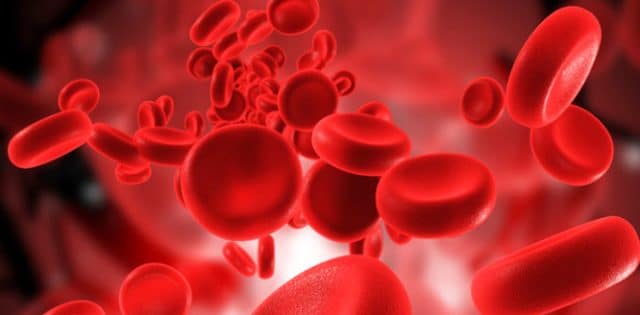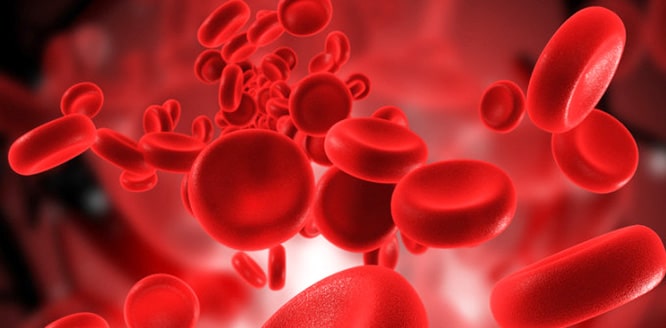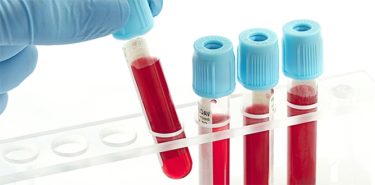
Table of Contents
What is neutrophil?
Neutrophils are a type of white blood cells which fight against infections caused by bacteria and fungi. They are produced in bone marrow and make up the majority (50-75%) of white blood cells. With chemical stimulation in case of inflammation, injury or infection, they migrate to the site of condition. The ones that do not encounter with microbes undergo programmed cell death and are cleared by liver and spleen. Due to rapid consumption of short-lived neutrophil, there is a large reserve in bone marrow.
Majority of neutrophils are in bone marrow, and the rest are in tissues and blood vessels. An adult produce 100,000,000 neutrophils a day; they have a life time of approximately 3-7 days in bone marrow and 6 hours in circulation.
What is the role of neutrophils?
Neutrophils have the function of killing as many microbes as possible. They can damage the microbes thanks to antimicrobial proteins which are the natural antibiotics of our body. With the help of other immune cells, they work for days or weeks until the immune system steps in. Each neutrophil only lives for a few hours and there is a continuous production of new neutrophils in bone marrow. Neutrophils determine their route based on the localization of infection or tissue injury.
Contrary to the other white blood cells, neutrophils are not restricted with a certain circulation area. They can move freely from vascular walls to body tissues to immediately attack all antigens.
Diseases related to neutrophils
Neutrophil and cancer
Cancer treatments (chemotherapy, radiation, surgery, stem cell or bone marrow transplantation) or the cancer itself decrease the count of white blood cells and prevent them from functioning properly by weakening the immune system. This is called immune suppression. The risk of infection is high when there is not sufficient amount of neutrophils to kill the microbes.
The timing of the decrease in neutrophil levels is associated with the chemotherapy dose. The levels start to decrease approximately one week after the chemotherapy cycle. When the production in the bone marrow starts again after the session, neutrophil levels start to increase, however, it takes 3-4 weeks to restore the normal levels.
Neutrophil and infection
Neutrophils are an important line of defense against many types of infection; neutrophil count is studied to understand the risk of infection. Neutropenia increases the susceptibility to fungal and bacterial infections. The risk level is based on the cause, severity, underlying medical condition, and the presence or absence of bone marrow reserve.
Neutrophil and heart diseases
Low neutrophil levels contribute to the vascular occlusion process, and being a risk factor for cardiovascular diseases, may result in heart attack.
Neutrophil and cystic fibrosis
It is a genetic disease affecting the secretory glands of many organs, leading to dysfunction starting from birth. It affects the lungs, pancreas, liver, bowels, sinuses and reproductive organs. The abundant amount of DNA released when the neutrophils which accumulated in airways due to infection and inflammation are broken down may result in stickier, thickened secretions, bronchial obstruction and permanent lung damage.
What is the normal neutrophil count?
What is the normal blood neutrophil count?
The normal range of neutrophil count differs in adults and children by age. Reference ranges are in microliter (mcL), and only give approximate values. Under normal conditions, neutrophil count is between 1500 and 8000 in adults and 1000 and 8000 in children.
What is the normal neutrophil count in babies?
At-risk pregnancies and delivery stress increase the stress hormone in mothers, thereby, causing the newborn inclined to neutrophilia, however, the levels become closer to normal within 1 week. Neutrophil counts in babies:
- Newborn: 6000-26,000 mcL
- 1-week: 1000-10,000 mcL
- 6-month: 1000-8500 mcL
The reasons for requesting a neutrophil count test
Absolute neutrophil count provides important clues about health. ANC is typically listed as a part of differential complete blood count (CBC). It is performed to help with a diagnosis of an illness, or to monitor a disease or the effect of chemotherapy. If the results are abnormal, the blood test is repeated weekly and the changes in neutrophil count is monitored. In some cases, bone marrow biopsy or additional tests may be necessary to diagnose a specific cause.
The results may differ between laboratories, also following factors may affect the results:
- Having an infection
- Chemotherapy, or radiation or corticosteroid treatment
- Recent history of operation
- HIV
- Pregnancy
- Age
- Sex
- Genetic inheritance
What is Neutropenia (Low neutrophil count)?
It means abnormally low neutrophil level. It can be mild, moderate or severe based on the neutrophil count; acute or chronic based on the duration; and acquired or congenital based on the cause. Neutropenia decreases the body’s ability to fight against infections and increases risk of life-threatening infections. It can be originating from cancer or illnesses damaging the bone marrow including genetic disorders affecting immune system, or by some medications. It is the most common or even an expected result of chemotherapy.
Neutropenia values
A neutrophil count less than 1500/mcL is considered as neutropenia, and it is classified as following:
- Mild neutropenia:1000-1500mcL
- Moderate neutropenia: 500-1000mcL
- Severe neutropenia: <500mcL
Neutropenia causes
- Problem with neutrophil production in bone marrow
- Extramedullary destruction of neutrophils
- Bone marrow deficiency
- Congenital bone marrow function disorders (Kostmann syndrome)
- Chemotherapy, radiation therapy
- Cancers affecting the bone marrow such as leukemia, lymphoma, multiple myeloma
- Antibiotics, blood pressure, epilepsy, psychiatry medications
- Poor nutrition, vitamin deficiencies
- Lyme disease
- Anemia, blood poisoning
- Autoimmune diseases such as rheumatoid arthritis, Crohn’s or lupus
Viral or bacterial infections causing neutropenia:
- Tuberculosis
- Dandy fever
- Epstein-Barr virus, HIV, Hepatitis A, B, C, salmonella, malaria
Problems caused by neutropenia
Any condition impairing the neutrophil production may lead to neutropenia, and this weakens the immune system. If severe neutropenia is prolonged, the risk of serious infection increases. Majority of the infections like ulcer, urticaria seen as a complication of neutropenia is caused by bacteria that are already present in skin, or gastrointestinal or genitourinary tract.
Symptoms of neutropenia
- Infections in mucosal membranes (e.g., intraoral or skin)
- Infection-related fever
- Skin abscess
- Mouth sores
- Swollen gingiva
- Fatigue
- Sweating
- Sore throat, abdominal pain
- Pain, burning sensation with urination
- Unusual vaginal discharge, itching
Neutropenia might be asymptomatic and usually noticed after a blood test performed for diagnosing a disease. For neutropenia patients, even a small infection can rapidly become serious. If you have any of these symptoms, consult with a physician as soon as possible.
Neutropenia treatment
Treatment is based on the underlying condition as well as the cause and severity of neutropenia. Treatment may not be necessary in mild cases. Therapeutic approaches are as following:
- Fever caused by infection is treated using antibiotics.
- Granulocyte colony stimulating factor (G-CSF) treatment stimulates the bone marrow to produce white blood cells.
- Granulocyte transfusion may be administered, though it is extremely rare.
- In drug-induced cases, the treatment is changed if possible.
- Stem cell transplants might be useful in the treatment of severe neutropenia caused by bone marrow problems.
- Corticosteroid treatment is used in cases of immune deficiency.
Neutropenia in babies
Neutropenia is one of the important problems seen in children. It can be congenital or acquired. The most common cause of acquired neutropenia is viral infections. Congenital neutropenia is usually diagnosed after occurrence of acute, life-threatening bacterial and fungal infections. Congenital neutropenia may be accompanied by immune system disorders.
How to increase low neutrophil counts in babies?
If there is an infection, the source should be identified and treated. In many cases, neutropenia improves spontaneously when the bone marrow develops and starts to produce sufficient amount of white blood cells. In rare cases of life-threatening neutropenia, medications to stimulate white blood cell production can be used.
Foods increasing the neutrophil levels
In periods of neutropenia, vitamins A, B, C, E, carotenes, iron, zinc and selenium are highly important to support the immune system. You can balance your body’s neutrophil count by eating foods which contain omega-3 and antioxidant.
In general, high-calorie foods rich in protein should be preferred.
- Red meat, chicken, turkey, fish, egg, milk and dairy products are important sources of vitamin B12, vitamin A, iron and protein. They should be well-cooked to consume.
- Cheese and yoghurt are rich zinc sources.
- Fish oil, flax seed, walnut, salmon, spinach and soy are foods containing high omega-3 fatty acid.
- Sea products and organ meat are foods containing selenium.
- Green-leafy vegetables, red-, orange-, yellow-colored vegetables are beta-carotene sources.
- Fruits and vegetables like orange, green pepper, parsley, broccoli, kiwi, strawberry, cherry, carrot, watermelon and melon which are rich in antioxidants, help cellular structure and are important vitamin C sources should be consumed in plenty amounts.
- Legumes are important folic acid sources.
- Oily seeds such as sesame, almond and peanut are rich in vitamin E.
- Green tea contains antioxidants which boost immunity and help fight against infections.
- You should also drink plenty of boiled and cooled water.
What is neutrophilia (High neutrophil level)?
It is the abnormally high neutrophil level and suggests that you have an infection. However, it can also be caused chronic myelogenous leukemia, a cancer of blood-producing tissues. Normal neutrophil count in the blood should be around 1500. If it increases above 8000, it is considered as neutrophilia, and this might be an indication of diseases such as cancer, hemolytic anemia, kidney disease, thyroid inflammation, rheumatoid arthritis and hepatitis. Neutrophil level might be increased during pregnancy or in newborns for the first 3 days of life, however, this is transient.
Neutrophilia causes
- Bacterial, viral, fungal infections
- Inflammation
- Injury
- Smoking or tobacco products use
- Stress
- Excessive exercise
- Steroid use
- Heart attack
- Chronic myeloid leukemia
- Surgical intervention, blood transfusion
Symptoms of neutrophilia
Neutrophilia is an asymptomatic disorder that means the symptoms are based on the underlying condition. Symptoms such as shortness of breath, fatigue, palpitation, chest-joint pain, fever and constipation may be seen based on the underlying condition. Regular complete blood count is helpful for early diagnosis of neutrophilia and also other illnesses.
Treatment of neutrophilia
Neutrophilia is usually caused by stress or infection, however, there may different causes. Therefore, additional tests are used to identify the underlying condition, and proper treatment can be recommended.
- Managing your daily stress may help restore normal neutrophil levels.
- If it is caused by infection, antibiotics or antiviral medications are used.
- In case of inflammation, anti-inflammatories are preferred.
- Corticosteroids and immune-modulator medications might be part of the treatment.
- If neutrophilia is caused by cancer, operation, chemotherapy and radiotherapy options are considered based on the type of cancer.
Recommendations for neutrophilia patients
- In severe cases, use private room and make sure that caregivers use gloves, gown and face mask.
- To reduce the risk of infection, take care of your personal hygiene; frequently wash your hands and brush your teeth.
- Avoid contact with ill people.
- Immediately clean the cuts and scratches, and put on bandage.
- Do not take very hot baths.
- Definitely avoid using alcohol, tobacco and other tobacco products.
- Do not eat undercooked meat and raw vegetables or eat all raw foods after you keep them in water mixed with vinegar for 30 minutes.
- Prefer eating fruits which can be peeled if possible.
- Avoid very hot, cold, spicy and sour foods.
- Avoid unpasteurized dairy products.
- Exercise and try to avoid stress.
References: 1- Neutropenia - infants, 2- What is neutropenia?, 3- Neutropenia and risk for infection




